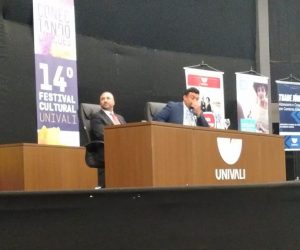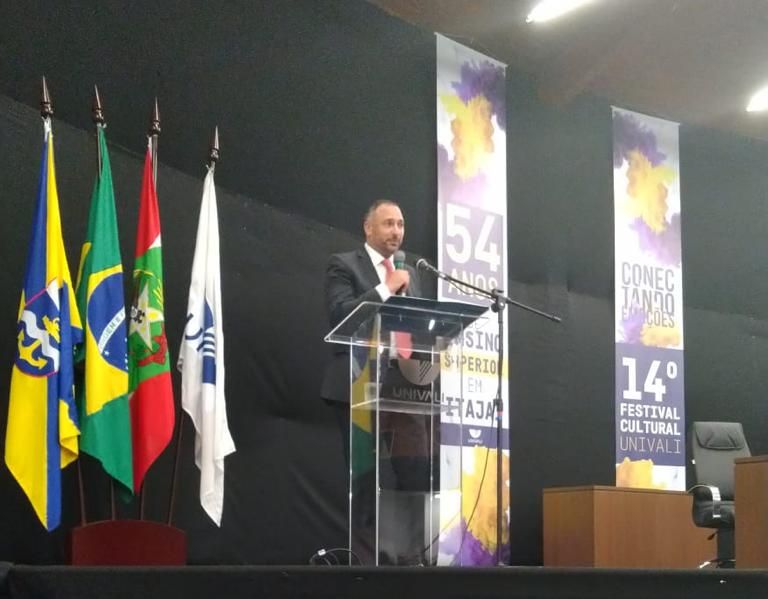São Paulo – Students from Vale do Itajaí University (Univali) are interested in joining an exchange program with universities in Arab countries. They said so Wednesday evening (26) during a lecture held by the Arab Brazilian Chamber of Commerce at the Univali campus in Itajaí, Santa Catarina.
Arab Chamber special projects adviser Tamer Mansour and the commercial consul and head of Egypt’s Economic and Commercial Office in São Paulo, Mohamed Elkhatib, discussed Brazil’s relations with Arab countries and the Mercosur-Egypt free trade agreement to an audience of about 250 students and business executives.
Arab universities often join such programs, and some even sustain student exchange and cooperation agreements with Brazilian institutions. The Arab Chamber pledged to help get Univali into programs with Arab universities.

One of the topics that piqued audience interest during the lecture at Univali was food security. Mansour told the students about the relevance of Santa Catarina in supplying food to Arab countries, since the state is a major poultry producer. He also mentioned the possibility that considering the region’s productive profile, the Port of Itajaí can become a logistics hub in shipping to Arab markets.
“Itajaí is a port city and the students are part of this reality. They work for companies in logistics, exports, food,” Mansour told ANBA this Thursday (27). According to Mansour, the students became very interested in a study the Arab Chamber will undertake on food security, and in a study carried out in 2015 on logistics and sea transportation in trade with Arab countries.
Students were also interested in the prospect of having textile companies in Santa Catarina do business with Egyptian suppliers of raw materials such as Egyptian cotton, whose quality is world-renowned. In speaking on this, consul ElKhatib also told the audience about Egypt’s free zones, which are open to Brazilian companies and can be a hub from which to sell to Africa other regions around the world that Egypt sustains trade agreements with.
He explained the advantages that the Egypt-Mercosur free trade agreement, which became effective late last year, can bring to Santa Catarina-Egypt trade. The deal provides for tax breaks in the shipping of goods, and in ten years’ time all of the goods under the treaty will be tax-free. Tariffs on a first set of goods have already dropped to zero.
ElKhatib also discussed the potential for Brazil-Egypt exchange in tourism, since both countries boast attractions in their own right. Mansour addressed the issue of halal goods. He said many opportunities are in place for Brazil to supply halal items to Arab countries, and not only meats – an industry that Brazil is a major player in –, but also in tourism, fashion, cosmetics etc.
The Wednesday event is part of a series of Arab Chamber-Univali lectures at the latter’s campus, in a bid to build ties with the academic community in Itajaí. Last May saw the Chamber open a branch in Itajaí, enabling local businesses to certify export papers concerning sales to Arab countries, and to find support in doing business with the Middle East and North Africa.
Translated by Gabriel Pomerancblum




